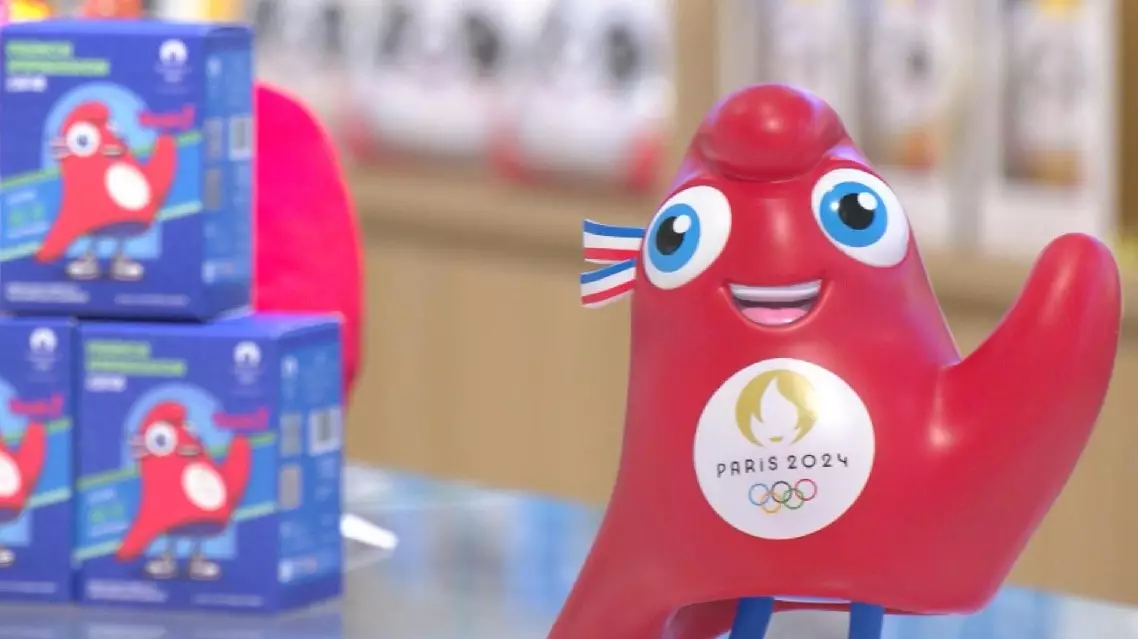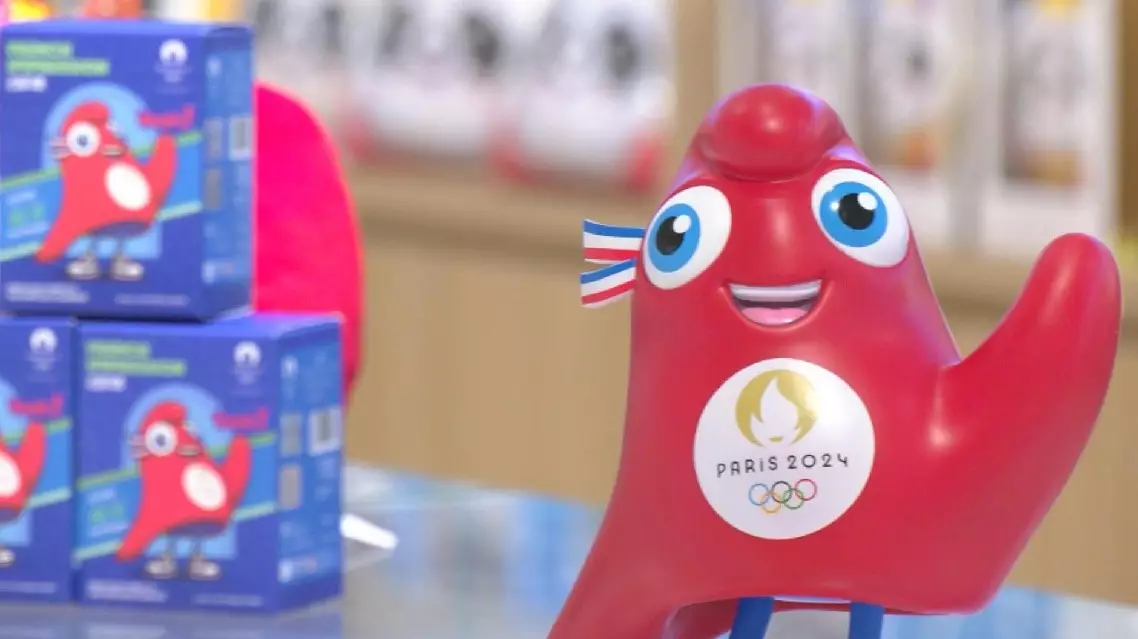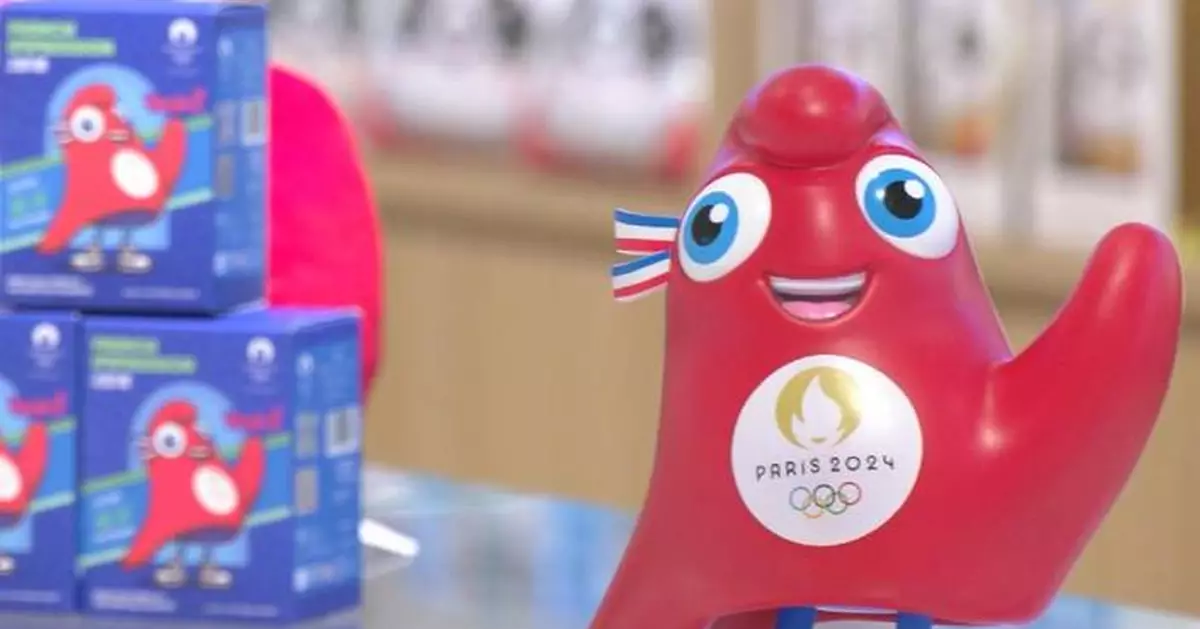As anticipation builds up for the 2024 Paris Olympic Games, the Olympic economy is experiencing a significant upswing in China, with soaring exports and domestic sales of sports equipment and Olympic-themed products.
Various products featuring the Paris 2024 Olympic mascot Phryge have been selling well in recent days.
According to statistics from the online shopping platform of T-Mall, since the establishment of the Chinese delegation for the Paris Olympics on July 13, daily visits to the official Olympic Games store on the platform have increased by over 20 percent month on month. Plush toys and commemorative coins of the mascot Phryge have been restocked 14 times.
"We first put these products on sale at the Beijing Olympic Museum on May 28, 2024. In the beginning, our daily sales were around 2,000 yuan (about 275 U.S. dollars). Currently, as the Paris 2024 Olympic Games approaches, our daily sales have increased to about 11,000 yuan (1,513 U.S. dollars)," said Li Wenxi, a salesman of a shop at the Beijing Olympic Museum.
Double Fish Sports Group, a Chinese sporting goods manufacturer based in Guangzhou, the capital of south China's Guangdong Province, has been designated as an exclusive supplier of table tennis balls for the 2024 Paris Olympic and Paralympic Games.
Since the beginning of this year, 22 batches totaling approximately 650,000 table tennis balls for the Paris Olympics have been produced and exported to 15 countries and regions worldwide, with a total value of about 2.1 million yuan (288,872 U.S. dollars).
The booming Olympic economy has also driven many Olympic-themed product manufacturers in China to expand production capacity.
A company based in Ningbo City, east China's Zhejiang Province, primarily produces trophies and medals for export to Europe. Since last year, orders have increased substantially, with the export value in the first half of this year rising by 138 percent year on year.
"If we don't increase our production capacity, we will not be able to finish all the orders until March next year. Therefore, to fulfill these orders by the end of this year, we have put into operation two new production lines. This year's output value is expected to increase by 25 to 30 percent," said Xie Xiangyu, manager of Ningbo Fasibo Sports Goods Co., Ltd.
"From January to June this year, Ningbo exported sporting goods and equipment worth 3.774 billion yuan (519 million U.S. dollars), marking a year-on-year increase of 22.12 percent. We have also established a green channel for the Olympic Games to ensure that sporting goods made in China can be shipped to the event on time," said Shao Fangbing, vice section chief of the export department of Haishu Customs in Ningbo City.
The Paris Olympic Games are scheduled to take place from July 26 to August 11, with the Paralympics following soon after from August 28 to September 8.

Sales of China-made Olympic products surge ahead of Paris 2024 Olympics

Sales of China-made Olympic products surge ahead of Paris 2024 Olympics






















































